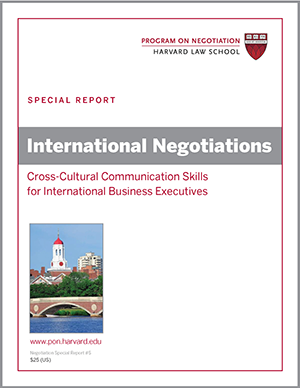
It was a grim and tense backdrop for negotiation. After Malaysia Airlines Flight 17 was senselessly shot down over eastern Ukraine on July 17, pro-Russian separatists faced intense international pressure to answer for the tragedy and to speed up their transfer of human remains and the plane’s black boxes out of the conflict zone.
The separatists had numerous potential partners with whom to negotiate the recovery effort, most prominently the Netherlands. The flight had originated from Amsterdam, and about two-thirds of the 283 passengers were Dutch.
Somewhat surprisingly, however, the separatists chose to negotiate instead with the Malaysian government. According to the New York Times, Malaysian prime minister Najib Razak held a series of top-secret phone calls with Alexander Borodai, a commander of the pro-Russian separatist forces in Ukraine. Borodai reportedly decided he would only release the bodies and black boxes to Malaysia, which could then turn them over to the Netherlands and international authorities.
Senior Malaysian officials rushed to Kiev, Moscow, and Amsterdam to carry out the negotiations. Forty-three Malaysian citizens had died in the crash, including 15 crew members. Malaysia Airlines was already reeling from the mysterious disappearance of its Flight 370 in March. The Malaysian government was anxious to speed up the recovery efforts and quell mounting criticism worldwide that the victims were being disrespected and evidence was being tampered with.
Why did the pro-Russian separatists choose to Malaysia? Malaysia is a leading member of nonaligned developing countries that pursued a neutral course between the United States and the Soviet Union during the Cold War, notes the Times. Malaysia has attempted to maintain this neutrality, for example, by not taking sides in the conflict in Ukraine.
By choosing to deal with Malaysia rather than a country or group clearly allied with Russia or the West, the separatists could lessen the chances of making a treacherous political situation even worse.
Once underway, the Malaysian government resisted the temptation to reveal its secretive negotiations with the separatists, despite being accused worldwide of not speaking out about the slow pace of the recovery efforts. Malaysian prime minister Najib Razak later said publicly that he had wanted to speak up about the events in Ukraine but that “sometimes, we must work quietly in the service of a better outcome.”
On July 21, Najib Razak announced that his government had negotiated an agreement with the separatists in Ukraine to transfer the bodies and black boxes to Malaysian representatives. Following the negotiations, the recovery efforts began to proceed in a faster, more organized manner.
The negotiations suggest the value of prioritizing discretion and neutrality in crisis situations. By choosing a relatively neutral negotiating partner, the pro-Russian separatists avoided escalating an already tense crisis and attracting further criticism for their role. And, by carrying out the negotiations quietly and limiting them to two-party talks, the separatists and the Malaysian government increased their odds of swiftly reaching a straightforward agreement.
In the end, the negotiation offered a rare and unexpected moment of rationality in the aftermath of a senseless tragedy brought on by a chaotic, brutal conflict.





